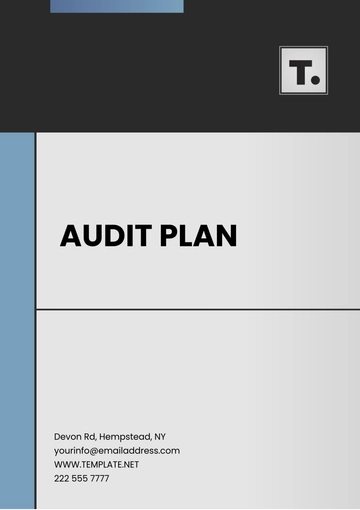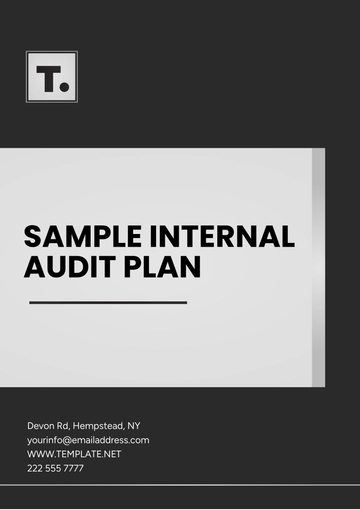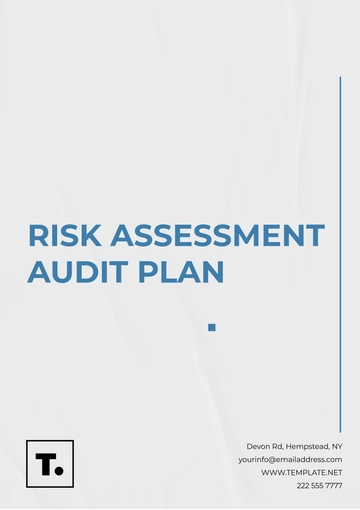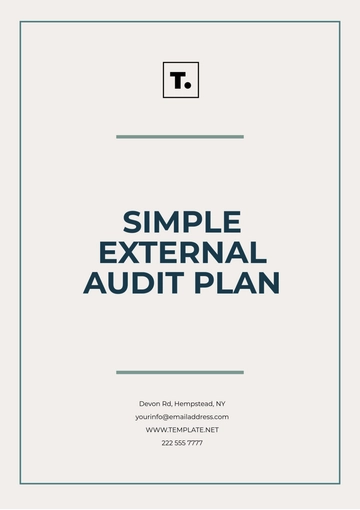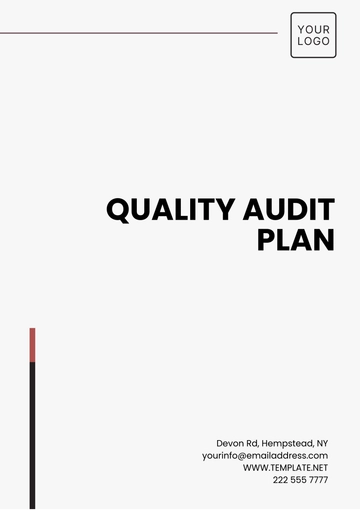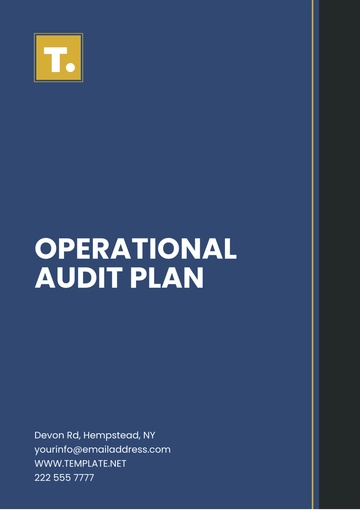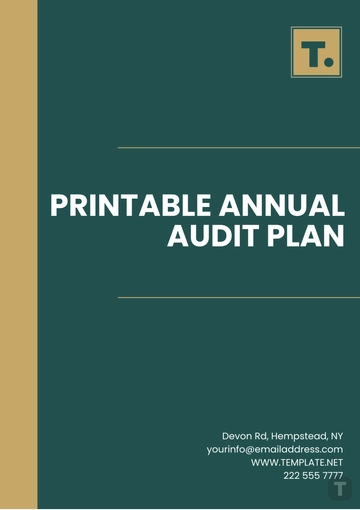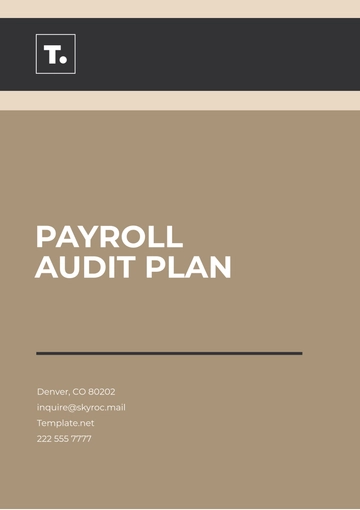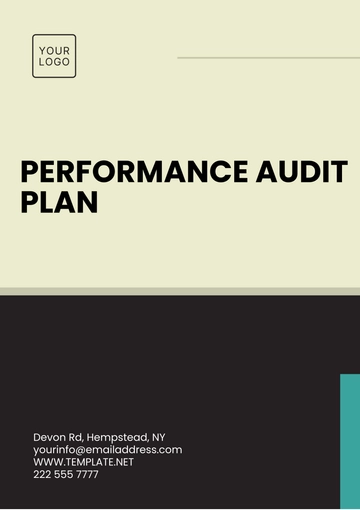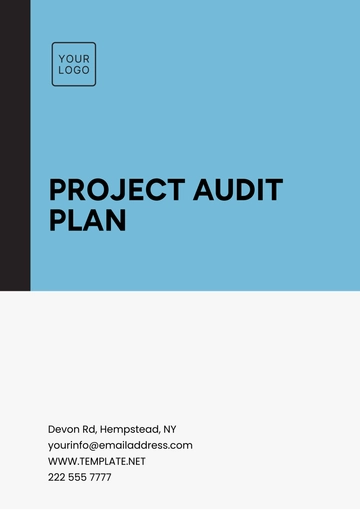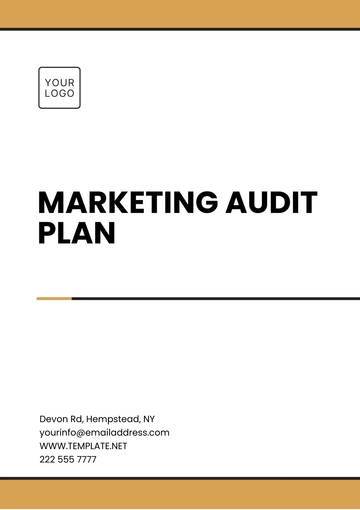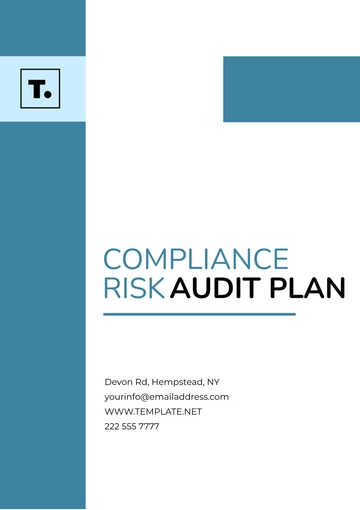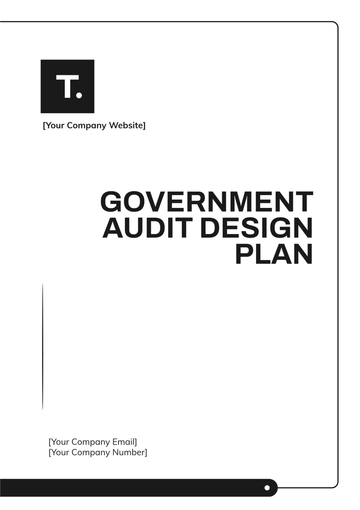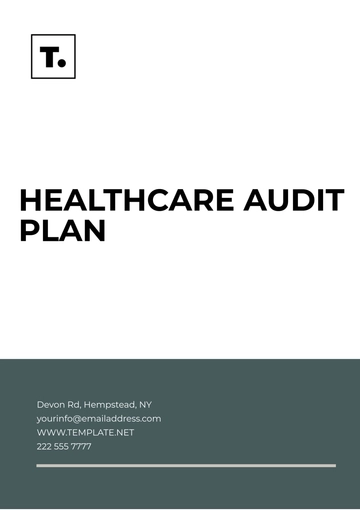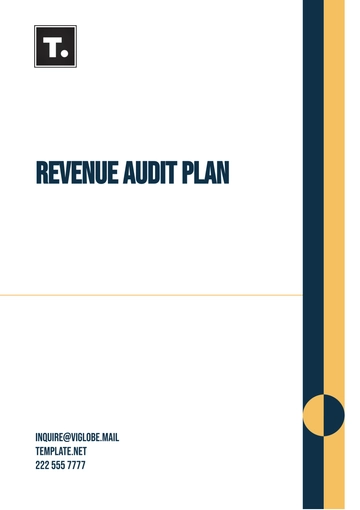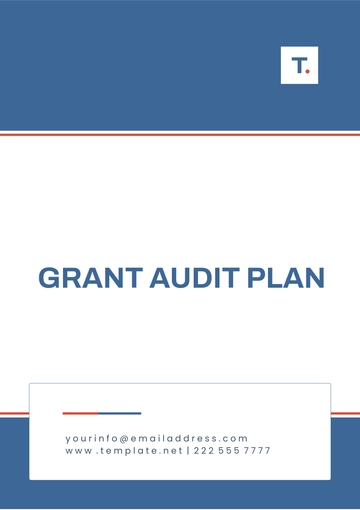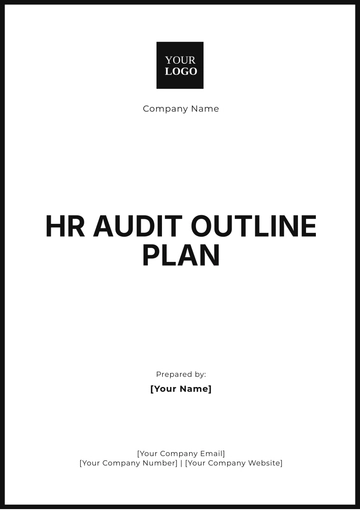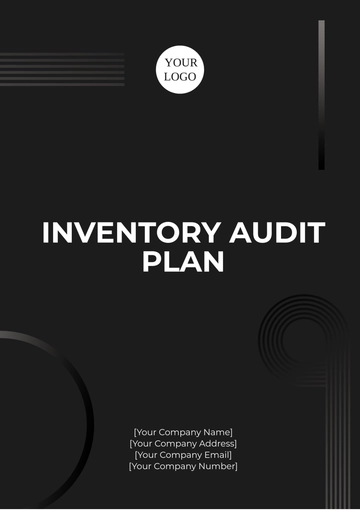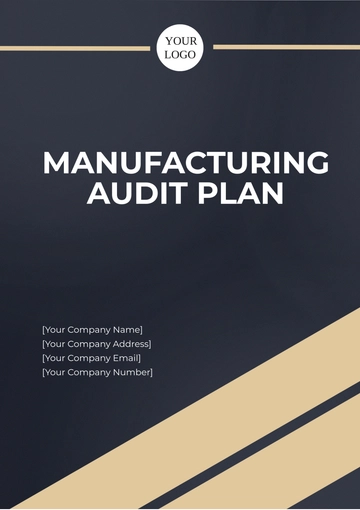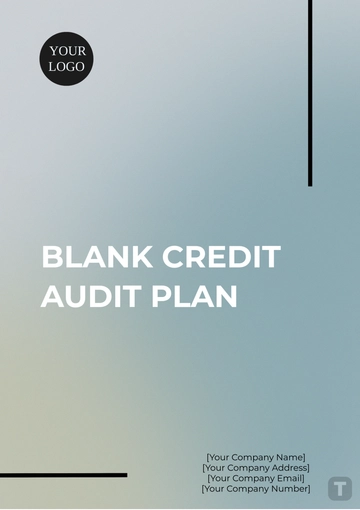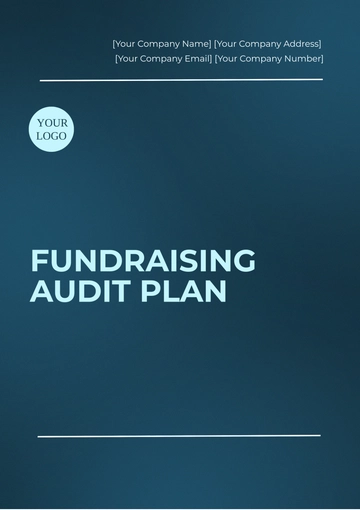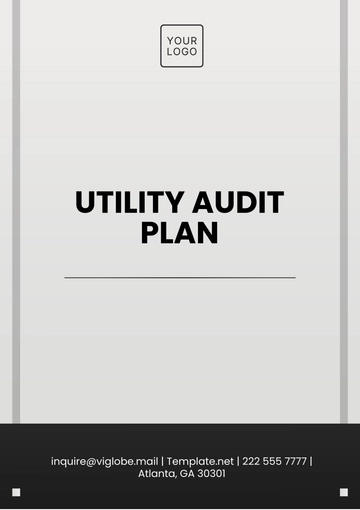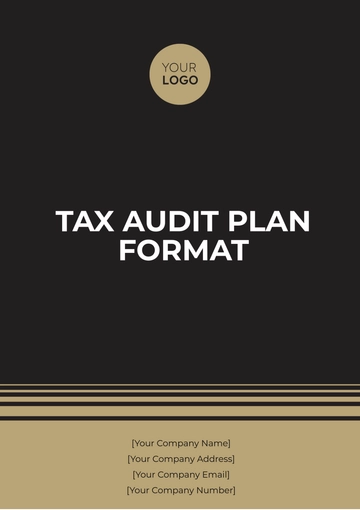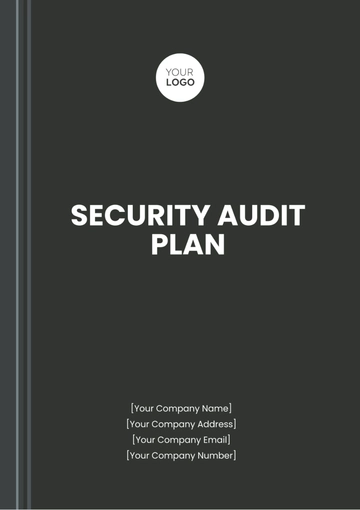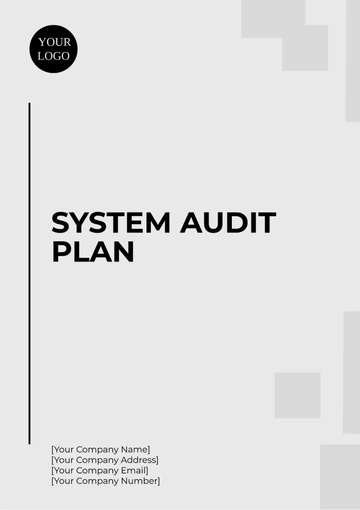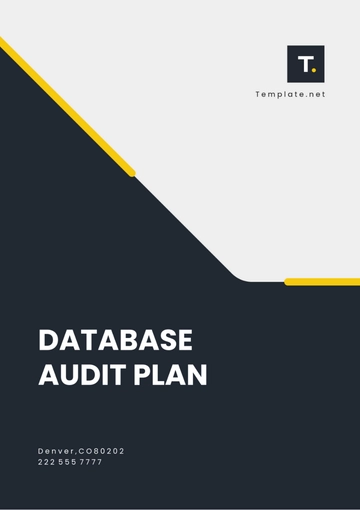Free Fundraising Audit Plan
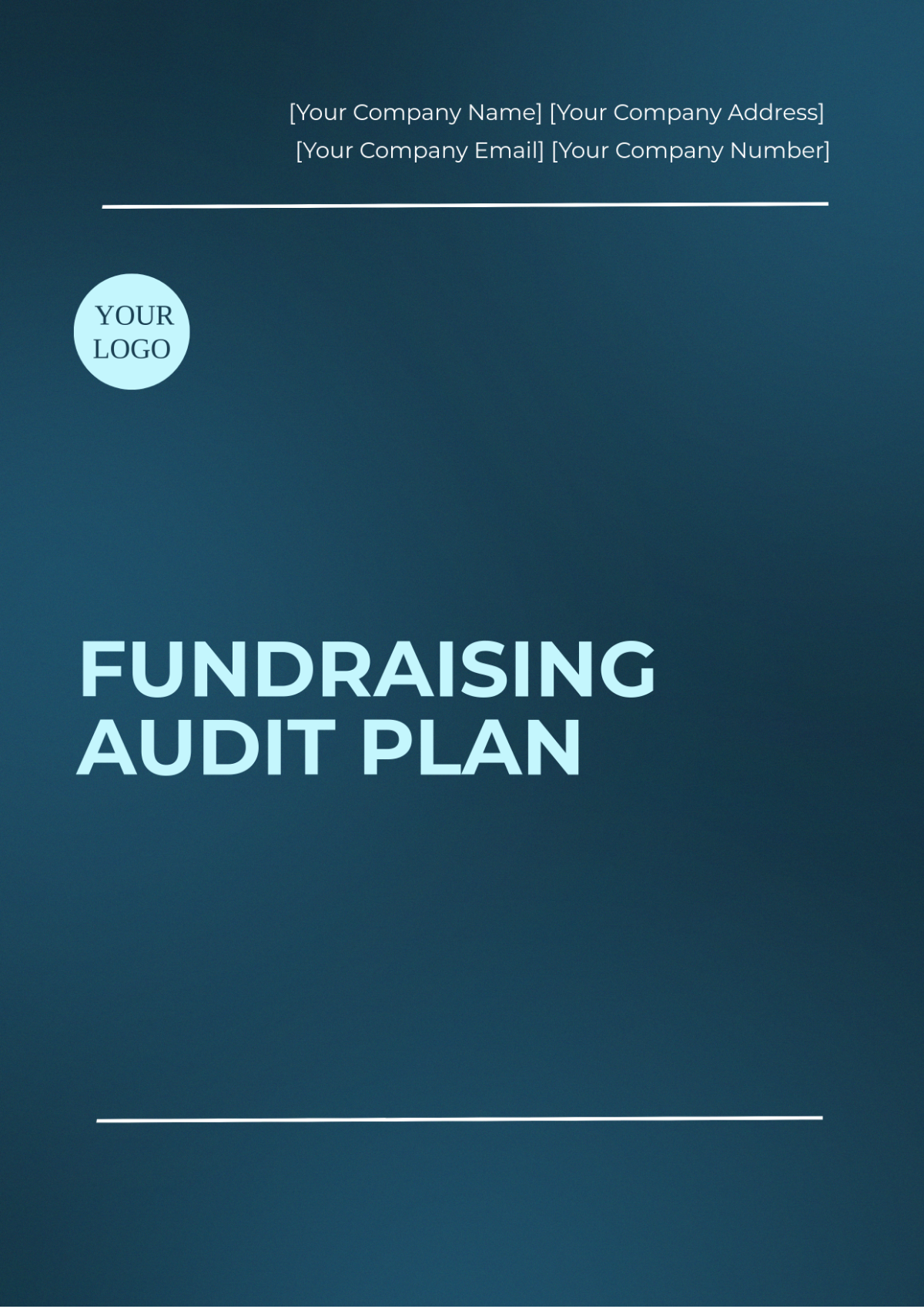
1. Introduction
Objective:
This fundraising audit plan is designed to evaluate and ensure the integrity, efficiency, and compliance of fundraising activities for [Your Company Name], starting from January 1, 2070, to December 31, 2071. The goal is to assess the alignment of fundraising practices with the organization's mission, donor expectations, regulatory requirements, and long-term sustainability.
Scope of Audit:
The audit will cover all fundraising events, activities, campaigns, and donation processing systems across [Your Company Name]. It will include both internal and external fundraising processes, third-party vendors, and digital fundraising platforms. The scope will also involve reviewing the management of donor databases, marketing strategies, compliance with fundraising laws, and ethical standards.
2. Audit Team and Responsibilities
Audit Team Members:
Lead Auditor: Jane Doe, CPA, Lead Auditor at [Your Company Name]
Internal Auditor: Mark Smith, Compliance Officer at [Your Company Name]
External Consultant: Lucy Harris, Fundraising Strategy Expert at [nsert Consulting Firm Name
Legal Compliance Officer: Sarah Brown, Legal Advisor at Insert Legal Firm Name
Each member of the audit team will focus on their area of expertise, ensuring a comprehensive review of financial and non-financial fundraising activities.
Responsibilities:
Lead Auditor: Coordinate the audit, define audit objectives, assign tasks, and ensure timely delivery of the audit report.
Internal Auditor: Provide access to internal data, policies, and relevant documentation. Ensure transparency and cooperation during the audit.
External Consultant: Evaluate fundraising strategies, marketing efforts, and digital campaigns for efficiency and impact.
Legal Compliance Officer: Review legal and regulatory compliance, ensuring all fundraising activities meet federal, state, and local laws.
3. Audit Timeline
Audit Period:
Planning Phase: January 2, 2070 – January 31, 2070
Fieldwork: February 1, 2070 – May 31, 2070
Review and Analysis: June 1, 2070 – August 31, 2070
Draft Report Submission: September 15, 2070
Final Report Submission: October 15, 2070
Implementation and Follow-Up: January 1, 2071 – June 30, 2071
4. Audit Methodology
Document Review:
The audit will begin with a comprehensive review of all relevant fundraising documents, including but not limited to:
Financial reports (2070-2071)
Fundraising event budgets and expense reports
Donor agreements and contracts
Compliance reports (2070 regulations)
Fundraising marketing plans and strategies
Interviews and Surveys:
Key stakeholders such as the fundraising department, event managers, major donors, and third-party vendors will be interviewed. Anonymous surveys will be conducted among the general donor base to gauge satisfaction and trust levels.
Field Observations:
Audit team members will observe live fundraising events, online donation platforms, and marketing campaigns in action. Observations will focus on donor engagement, data security, and transparency in communication.
Testing and Data Analysis:
A sample of financial transactions, including donation processing, refunds, and pledge collections, will be selected for detailed testing. Data from digital platforms will be analyzed for donor trends, campaign effectiveness, and conversion rates.
5. Key Audit Areas
1. Fundraising Efficiency
Review how resources are allocated across different fundraising channels (e.g., events, online campaigns, direct mail).
Assess return on investment (ROI) for each fundraising campaign.
2. Donor Relations and Management
Evaluate the effectiveness of the donor database system in managing relationships, tracking donor preferences, and ensuring timely communication.
Examine donor retention strategies, donor segmentation, and personalized outreach methods.
3. Compliance and Ethical Standards
Ensure that fundraising activities comply with all local, state, and federal fundraising laws (2070 updated regulations).
Verify adherence to ethical standards outlined by the Association of Fundraising Professionals (AFP).
4. Digital Fundraising and Cybersecurity
Assess the security of digital platforms used for fundraising, ensuring that donor information is protected from cyber threats.
Analyze the effectiveness of digital campaigns (social media, email marketing) and donation tools.
5. Transparency and Reporting
Review transparency measures, such as annual donor impact reports and financial disclosures, to ensure they provide clear, accurate, and timely information to donors.
6. Risk Management
Potential Risks Identified:
Cybersecurity vulnerabilities in digital fundraising platforms
Mismanagement of donor funds or failure to comply with legal standards
Inaccurate or delayed financial reporting
Poor donor engagement leads to low donor retention rates
Mitigation Strategies:
Regular updates to cybersecurity protocols and software
Quarterly compliance audits with external legal review
Improved financial reporting practices with real-time updates on fundraising goals
Implementing donor feedback systems and personalized engagement strategies
7. Reporting
Draft Report:
The draft audit report will be submitted to the Board of Directors by September 15, 2070. It will include detailed findings, key issues, and recommendations for improvement.
Final Report:
The final report, incorporating feedback and revisions, will be completed by October 15, 2070, and presented to all relevant stakeholders, including the Board, senior management, and key fundraising personnel.
8. Implementation and Follow-Up
Implementation:
The audit team will work closely with the fundraising department and management to implement the recommendations outlined in the final audit report. Action plans will be developed to address areas of improvement, with clear deadlines and assigned responsibilities.
Follow-Up Audits:
A follow-up audit will take place six months after the final report (June 30, 2071) to assess the progress of implementing the recommendations and to review any remaining issues.
- 100% Customizable, free editor
- Access 1 Million+ Templates, photo’s & graphics
- Download or share as a template
- Click and replace photos, graphics, text, backgrounds
- Resize, crop, AI write & more
- Access advanced editor
Track and evaluate fundraising efforts effectively with Template.net's Fundraising Audit Plan Template. This editable and customizable template helps structure your audit process for financial transparency. Fully editable in our Ai Editor Tool, it’s designed for effortless customization to fit your organization’s needs.
You may also like
- Finance Plan
- Construction Plan
- Sales Plan
- Development Plan
- Career Plan
- Budget Plan
- HR Plan
- Education Plan
- Transition Plan
- Work Plan
- Training Plan
- Communication Plan
- Operation Plan
- Health And Safety Plan
- Strategy Plan
- Professional Development Plan
- Advertising Plan
- Risk Management Plan
- Restaurant Plan
- School Plan
- Nursing Home Patient Care Plan
- Nursing Care Plan
- Plan Event
- Startup Plan
- Social Media Plan
- Staffing Plan
- Annual Plan
- Content Plan
- Payment Plan
- Implementation Plan
- Hotel Plan
- Workout Plan
- Accounting Plan
- Campaign Plan
- Essay Plan
- 30 60 90 Day Plan
- Research Plan
- Recruitment Plan
- 90 Day Plan
- Quarterly Plan
- Emergency Plan
- 5 Year Plan
- Gym Plan
- Personal Plan
- IT and Software Plan
- Treatment Plan
- Real Estate Plan
- Law Firm Plan
- Healthcare Plan
- Improvement Plan
- Media Plan
- 5 Year Business Plan
- Learning Plan
- Marketing Campaign Plan
- Travel Agency Plan
- Cleaning Services Plan
- Interior Design Plan
- Performance Plan
- PR Plan
- Birth Plan
- Life Plan
- SEO Plan
- Disaster Recovery Plan
- Continuity Plan
- Launch Plan
- Legal Plan
- Behavior Plan
- Performance Improvement Plan
- Salon Plan
- Security Plan
- Security Management Plan
- Employee Development Plan
- Quality Plan
- Service Improvement Plan
- Growth Plan
- Incident Response Plan
- Basketball Plan
- Emergency Action Plan
- Product Launch Plan
- Spa Plan
- Employee Training Plan
- Data Analysis Plan
- Employee Action Plan
- Territory Plan
- Audit Plan
- Classroom Plan
- Activity Plan
- Parenting Plan
- Care Plan
- Project Execution Plan
- Exercise Plan
- Internship Plan
- Software Development Plan
- Continuous Improvement Plan
- Leave Plan
- 90 Day Sales Plan
- Advertising Agency Plan
- Employee Transition Plan
- Smart Action Plan
- Workplace Safety Plan
- Behavior Change Plan
- Contingency Plan
- Continuity of Operations Plan
- Health Plan
- Quality Control Plan
- Self Plan
- Sports Development Plan
- Change Management Plan
- Ecommerce Plan
- Personal Financial Plan
- Process Improvement Plan
- 30-60-90 Day Sales Plan
- Crisis Management Plan
- Engagement Plan
- Execution Plan
- Pandemic Plan
- Quality Assurance Plan
- Service Continuity Plan
- Agile Project Plan
- Fundraising Plan
- Job Transition Plan
- Asset Maintenance Plan
- Maintenance Plan
- Software Test Plan
- Staff Training and Development Plan
- 3 Year Plan
- Brand Activation Plan
- Release Plan
- Resource Plan
- Risk Mitigation Plan
- Teacher Plan
- 30 60 90 Day Plan for New Manager
- Food Safety Plan
- Food Truck Plan
- Hiring Plan
- Quality Management Plan
- Wellness Plan
- Behavior Intervention Plan
- Bonus Plan
- Investment Plan
- Maternity Leave Plan
- Pandemic Response Plan
- Succession Planning
- Coaching Plan
- Configuration Management Plan
- Remote Work Plan
- Self Care Plan
- Teaching Plan
- 100-Day Plan
- HACCP Plan
- Student Plan
- Sustainability Plan
- 30 60 90 Day Plan for Interview
- Access Plan
- Site Specific Safety Plan
